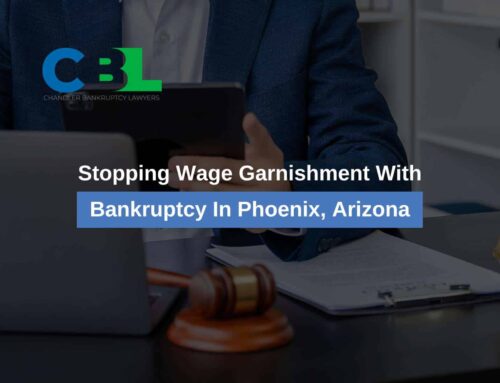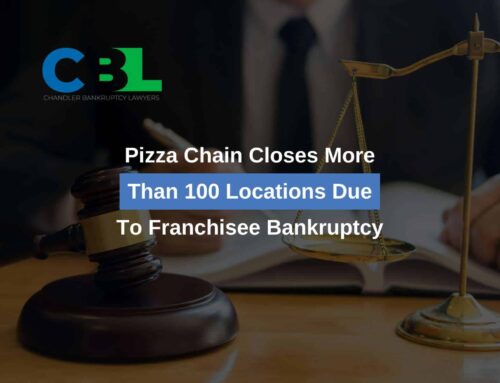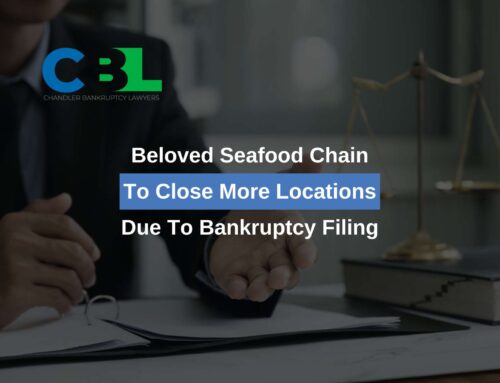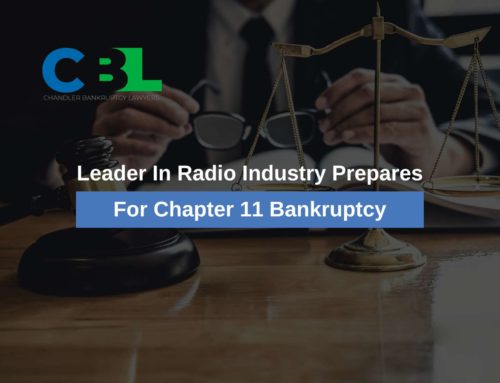With the cost of living increasing faster than ever, more people live paycheck-to-paycheck, which also means more people are in peril of falling into debt from an unexpected financial emergency. An illness, injury, car maintenance issue, a leaky roof, etc., could all cause a family that would have been relatively wealthy a few decades ago to fall into default on their bills and risk financial ruin. Filing bankruptcy could be a good way for a family to avoid foreclosure, repossession, or wage garnishment, or just get rid of burdensome debt in general. But it does come with long-term consequences and will remain on the debtor’s credit history for a considerable period. If you want to work with the federal government and in certain other careers, you may need security clearance as a job requirement. Debt and bankruptcy could potentially impact your ability to obtain a security clearance. Read on to learn more about this issue, and call our Arizona bankruptcy firm if you have any additional questions at 480-780-2211.
How Long Does Bankruptcy Remain On The Debtor’s Credit Report?
Even if you aren’t concerned about obtaining security clearance after filing for bankruptcy, you may be concerned about how long the bankruptcy filing will remain on your credit report. Your credit report can be pulled and reviewed for several reasons, like renting an apartment, applying for a home mortgage, and more. A Chapter 13 bankruptcy will remain on the debtor’s credit report for seven years. A Chapter 7 bankruptcy will remain on the debtor’s credit report for ten years. Additionally, filing bankruptcy will disqualify both types of debtors from most home mortgages for a certain period. This is usually 2 years unless the debtor can prove special circumstances that should exclude them from this restriction.
Obtaining Security Clearance
A security clearance is authorization to access classified information in the course of their job duties. There are three different levels of security clearances: Confidential, Secret, and Top Secret. Confidentiality is the lowest level of security clearance, and Top Secret is the highest. So how many people have access to this type of classified information? As of 2017, there were about 4 million people in the United States with various levels of security clearance.
There are four main steps to the security clearance process. First is the pre-investigation phase. This occurs when the agency in question has decided that the applicant needs security clearance for their position. The agency should also determine which level of clearance is necessary. The applicant can begin filling out their Standard Form 86, or SF 86.
Next is the investigation phase. The agency seeking security clearance for the employee will do a background check on that employee. The investigation for a Top Secret clearance will be more in-depth than a Confidential background check. The agency will review all the information the applicant included in the SF 86, as well as general background check items like a review of criminal records. Depending on the scope of the investigation, bankruptcy could be relevant during the investigation phase for a security clearance.
The time period in which the application is pending approval is known as the adjudication phase. This could involve further questions about any issues that arise during the investigation phase. If the security clearance is granted, the applicant will be subject to periodic reinvestigations.
Why Could Bankruptcy Be A Concern?
It may seem like your debt and financial matters should be none of the government’s business. However, in certain positions with the federal government, debt is considered relevant for our nation’s security. The theory here is that someone struggling with debt could be more susceptible to bribes. That doesn’t mean that anyone with debt or a previous bankruptcy will be broadly denied a security clearance. For example, someone who filed Chapter 7 bankruptcy several years ago and hasn’t struggled with debt since wouldn’t be much of a concern. Neither would someone who is almost done with a Chapter 13 bankruptcy that is in good standing.
Why The Chapter Matters
If you’re early in the bankruptcy research process, you might not understand the differences between Chapter 7 and Chapter 13, and how they translate into different security clearance application outcomes. Chapter 7 is a liquidation bankruptcy. It is only available to people whose income falls below certain levels, and they cannot retain valuable assets, the limits of which are set by the state. Chapter 7 can discharge large amounts of unsecured nonpriority debts, like credit cards, personal loans, medical bills, and some taxes. A Chapter 7 bankruptcy debtor can’t discharge secured debts, e.g., a financed vehicle, without surrendering the collateral asset. Certain debts won’t be discharged by Chapter 7 bankruptcy, and a Chapter 7 bankruptcy won’t even temporarily stop a wage garnishment from a child support debt. After discharging debts in Chapter 7, the debtor can’t file Chapter 7 again for 8 years and Chapter 13 for 4 years. That means the debtor will be ineligible to use the protections of the automatic stay against creditors for whichever waiting period applies.
Chapter 13 bankruptcy doesn’t clear away debts almost instantly like Chapter 7. Instead, debts are paid off in a payment plan lasting 3 or 5 years. The plan payments are precisely calculated using the debtor’s disposable monthly income. Bankruptcy fees, secured debts, and priority debts must all be paid in full in a Chapter 13 bankruptcy payment plan. Unsecured debts, or those that can be discharged in Chapter 7 bankruptcy, will only be paid to the extent that the debtor’s disposable monthly income allows within the 3 or 5 years that the payment plan lasts. A debtor who completes a Chapter 13 bankruptcy should be in fairly good financial standing by the end of the plan- all of their assets (except for possibly their home) should be paid off, as well as other loans and debts that could have been burdensome. That is why someone who is in or has completed a Chapter 13 bankruptcy is considered less of a risk for security clearance reasons than a Chapter 7 bankruptcy debtor.
What Types Of Jobs Require Security Clearance?
Many people will go their entire lives without worrying about obtaining security clearance for a job position. That means that most people considering bankruptcy shouldn’t let the risk of not obtaining security clearance sway them away from filing bankruptcy. Below are some of the types of jobs and careers in which security clearance may be required.
FBI agent (Federal Bureau of Investigations):
- Any FBI employees who are exposed to top-secret information, including janitors
CIA agent (Central Intelligence Agency):
- Same as FBI
Public trust positions
National security positions
Army positions
- Intelligence analyst
- Prime Power Production Specialist
- Electromagnetic Spectrum manager
- Fire Support Specialist
- Civil Affairs specialist
- Counterintelligence agent
Let Our Arizona Bankruptcy Team Ease Your Concerns
If you already have security clearance or wish to obtain it in the future, it’s important to discuss with Chandler Bankruptcy Lawyers how filing for bankruptcy could affect this in greater detail. However, bankruptcy also comes with tremendous benefits that could pull you and your family out of a tight financial spot. To learn more about the benefits and disadvantages of discharging debt through bankruptcy, contact our firm for your free consultation or call us at 480-780-2211.
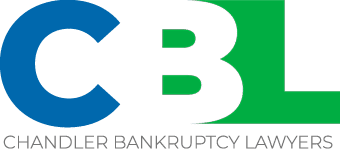
1731 West Baseline Road #101
Mesa, Arizona 85202
Phone:(480) 448-9800
Additional assistance is available from our Arizona Bankruptcy Experts:
Gilbert Bankruptcy Attorneys
Tucson Bankruptcy Lawyers
Glendale Bankruptcy Lawyer
Chandler Bankruptcy Lawyer
Tempe Bankruptcy Lawyers
Arizona Bankruptcy Attorneys
Peoria Bankruptcy Lawyers


